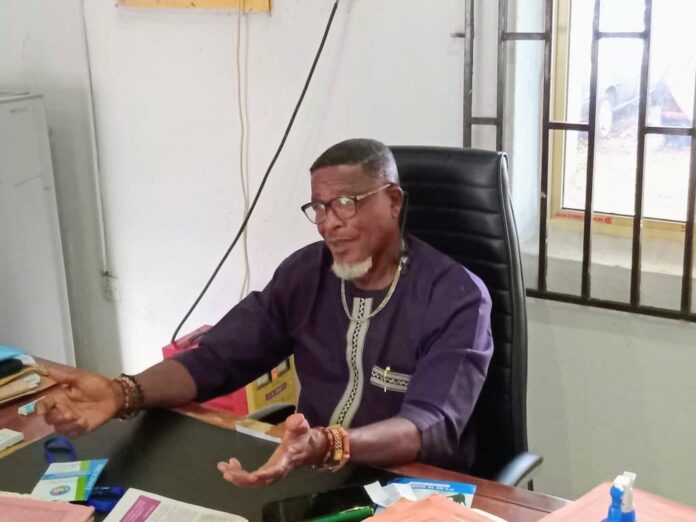The Executive Chairman of the Delta State Post Primary Education Board (PPEB), Professor Emmanuel U. Tibi, has outlined the board’s responsibilities, the challenges facing secondary education in the state, and his expectations for teachers and students.
In an interview in Asaba on Thursday, October 2, 2025, Prof. Tibi explained that the PPEB works under the Ministry of Secondary Education and is mainly responsible for managing teachers and staff in secondary schools across the state.
“Our job is to recruit teachers, post them to schools, monitor their work, discipline when necessary, and govern the report,” he said. “But most importantly, we must ensure principals and teachers deliver real education, not just exam preparation.”
Prof. Tibi noted that many of the policies used in Delta schools come from the federal level. These policies are developed in Abuja, then passed down for state implementation.
He explained that the current review of Nigeria’s school curriculum has not yet fully reached the state level. “We are waiting for official directives,” he said. “Until then, we continue with existing structures.”
Speaking on the move from pen-and-paper exams to computer-based tests (CBT) like JAMB, Prof. Tibi said that while the transition is positive, it comes with challenges.
“Some students may be brilliant in their subjects but still struggle to use computers,” he said. “Some don’t even know how to click ‘submit’ after answering questions. On the other hand, many of our teachers belong to the analogue generation, so they also need training to guide students properly.”
He stressed that readiness must start at the smallest level: “We must prepare both teachers and students early so they can compete in this digital age.”
As schools resume for a new term, Prof. Tibi charged teachers and principals to take their roles seriously.
“Education is not just about passing WAEC or JAMB,” he said. “It is about preparing young people for life—giving them skills, knowledge, and the right values.”
He also pointed out the importance of vocational training, noting that not every student will continue to university. “After Junior Secondary School, some students may decide to learn trades or acquire skills. Education should prepare them for that too,” he explained.
On the issue of parents moving their children from public to private schools in senior classes, Prof. Tibi said the practice is common but worrying.
“Some parents believe private schools guarantee better results, even when the quality of learning may not be better. We see situations where schools lose students in SS2 because parents are chasing miracle exam centres,” he revealed.
He emphasised that both public and private schools must focus on real teaching, not shortcuts.
Delta State has over 400 functional secondary schools, with thousands of teachers, principals, and vice principals. Prof. Tibi said the PPEB continues to do its best to support them.
“We are guided by government policies, and we are committed to ensuring that our schools deliver quality education,” he said. “Our priority is to raise students who are not just exam-passers but responsible citizens, ready for the future.”



